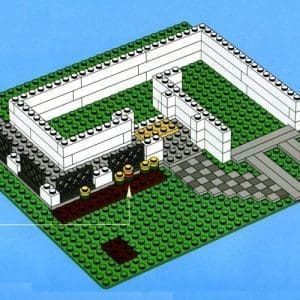Have you ever experienced the clash of terminology that results when supply chains are brought together, due to acquisition or merger? The typical scenario: different groups using multiple terms to describe where product is manufactured at and shipped from; folks use terms like “location”, “plant”, and “site” interchangeably, and confusion can result – are we talking about SAP configuration? Wide-area network architecture? Rollout plans?
To communicate effectively, it helps to clarify things. Here is a starter list of terms from projects I’ve been involved with. Care to add / edit the list?
Generic Terms
- A building is what it sounds like – four walls and a roof.
- A facility could refer to one or more buildings.
- A campus is a generic term for a group of buildings.
Specific Terms – ERP
- In SAP, a Plant is a place where materials are produced, or goods and services are provided. A Plant is made up of one or more buildings.
- In some Warehouse Management Systems (WMS), a Warehouse refers to a single building. In SAP, a Warehouse is a collection of Storage Areas; a building can contain multiple storage areas, and a warehouse can span multiple buildings.
Specific Terms – WAN
- A Site typically designates a point-of-presence to the Wide Area Network (WAN) – a cluster of WAN devices that connects one or more buildings to the network.
Details!
A Chinese proverb states, “Wisdom begins with calling things by their right names.” When bringing companies and cultures together, project managers need to pay special attention to the words; we must be very precise with our language, so everyone understands that we are all talking about the same thing.


Comments (1)
TO ERP OR NOT TO ERP? THAT IS THE QUESTION
Todays Management Nirvana, according to many, lies within Totally Integrated Management Solutions, commonly referred to (in its ‘Americanism’ form) as ERP, Enterprise Resource Planning.
The argument for integrating all business systems to create a ‘synergistic’ whole for a company is compelling and attractive to many. Indeed, a number of very large, very successful businesses today owe their continued dominance or even existence to having implemented a successful ERP system.
So, is ERP the ‘Holy Grail’ for all?… No. Very large businesses do not operate in the same way as other businesses. They dominate, they shape markets, they lead development and research, their management development budgets run into Millions (Their turnover measured in Billions). They can afford to re-shape their ERP systems to suit what they plan to do – when they want to do it. Many smaller businesses do not have this luxury.
Is there a mid-point solution then?… Yes and No. The whole point of Totally Integrated Management Solutions is just that – They Totally Integrate all of the Management Processes within a business to achieve the most efficient control and management of information flowing through the company. Ideally ‘live’ data could and should be able to give an accurate ‘snapshot’ at any given time of the status of work from an individual job to entire company performance. Any movement away from this ‘ideal’, any compromise, is not therefore true ERP (in Total Integration Terms). Compromise can, however, bring the benefits of Totally Integrated Systems within affordable reach of many smaller / mid-sized businesses – possibly a better term for this type of solution is ‘Total Enterprise Management Systems’ where solutions are focussed on the core business of a company, but adapted to suit the unique differences that make that particular business stand out. A ‘Total’ solution for any business should also take into account that the most consistent factor in many businesses is that change is inevitable. Many (Very Expensive!) systems from large suppliers and installers are not flexible! You have to adapt to their way of working or pay relatively huge sums (compared to the original purchase cost of the base system) to modify, and this can go on, and on and on…
So what is the solution?… It will be different for every company, every type of business. If you are a production / manufacturing company for example, you will ideally be looking for Total Production Management Systems, with a core that matches your core business – but easily and cost effectively adaptable to your specific needs now and in the future. Some compromise in just how tightly you set up any such system is acceptable – if it gives you the flexibility to manage future change.